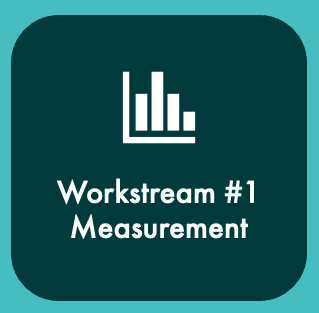Our Work
We focus on three overlapping
and complementary workstreams, each involving research and co-creation with diverse stakeholders – including investors, workers, communities, policy makers
and regulators, and academics.


Co-creating measurement, target-setting, disclosure, and evaluation tools focused on investors’ impacts, dependencies, risks, and opportunities.
- We are a founding Working Group member of the Taskforce on Inequality and Social-Related Financial Disclosures (TISFD), an evidence-based, multi-stakeholder global initiative supported by financial institutions, business, civil society, and labour leaders worldwide to develop recommendations and guidance for businesses and financial institutions to understand and report on impacts, dependencies, risks, and opportunities related to people.
- A collaboration with Impact Frontiers (IF) on the Investor Influence project (formerly named Investor Contribution 2.0) which takes an expansive view of the multifaceted ways investors shape outcomes for stakeholders and the natural environment and recommends that these considerations should be an embedded part of investors’ impact management approaches.

Facilitating capacity building to improve investment governance and financial analysis practices to better account for people and nature.
- In partnership with the Responsible Asset Allocator Initiative (RAAI) and Paul O’Brien (a Trustee of Wyoming’s retirement system and former Deputy Chief Investment Officer of the Abu Dhabi Investment Authority), PDI is collaborating with leaders in the institutional asset owner and allocator community to co-create solutions to reform traditional asset allocation and benchmarking practices that restrict responsible investing and inhibit the effective management of system-wide risks via the Responsible Financial Benchmarking Lab (RFBL). You can find the recording of the RFBL launch webinar here.
- A recent webinar co-hosted by the manager of the UK railways pension schemes, Railpen and PDI, themed “Perspectives on Workforce Directors – Opportunities & Challenges”, explored the potential and hurdles of integrating workforce directors into corporate boards. The webinar highlighted that while the concept of workforce directors offers promising opportunities for enhancing workforce engagement and governance, it also faces significant challenges. By addressing these challenges and leveraging the experiences of pioneers in this field, companies can better navigate the complexities of integrating workforce directors and unlock their full potential for improving corporate performance and employee relations. More detailed insights, key takeaways, and the webinar recording may be found here.

Identifying, refining and scaling innovative, inclusive and regenerative investment structures.
- Employee ownership offers compelling opportunities to share wealth and influence with workers and communities, including in Emerging Markets and Developing Economies (EMDEs). Funded by the Sorenson Impact Foundation, the Investor Playbook for Employee Ownership in Sub-Saharan Africa provides an analytical approach to advancing employee ownership (EO) across seven countries in the sub-continent, offering insights that can be adapted to other EMDEs where EO remains underutilized. The Playbook highlights the potential of EO to create more inclusive and resilient economies, particularly in emerging markets where wealth concentration and economic inequality remain pressing challenges from within and across countries. By giving workers a direct stake in the success of the businesses they help build and sustain, EO can drive long-term prosperity, improve business performance, and strengthen communities.
- As part of PDI’s efforts to co-create improved investment structures and practices that share more wealth and influence with workers and communities, we invite interested parties to join the evolving Ownership Lens Investing Movement. A recent (virtual) convening resulted in an inspiring gathering of minds that echoed a shared commitment to scaling strategies and capital to build wealth and influence for individuals and communities. The October 16 session showcased the potential of a “big tent” approach to ownership lens investing (OLI) across shared ownership of enterprise and real assets, as well as individual ownership. For more information, see the session recording and key takeaways. If you would like to stay updated and get involved, you can fill out this brief survey.
Public Policy Engagement
The Predistribution Initiative periodically engages in public policy and regulatory reform. Please see below for examples of our comment letters to various public consultation periods:
- Amendments to Form PF to Require Current Reporting and Amend Reporting Requirements for Large Private Equity Advisers and Large Liquidity Fund Advisers (read the original SEC proposal)
- Reopening of Comment Period for Pay Versus Performance (read the original SEC proposal)
- Climate Change Disclosures (read the SEC call for public input)